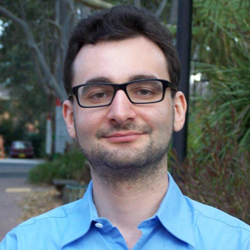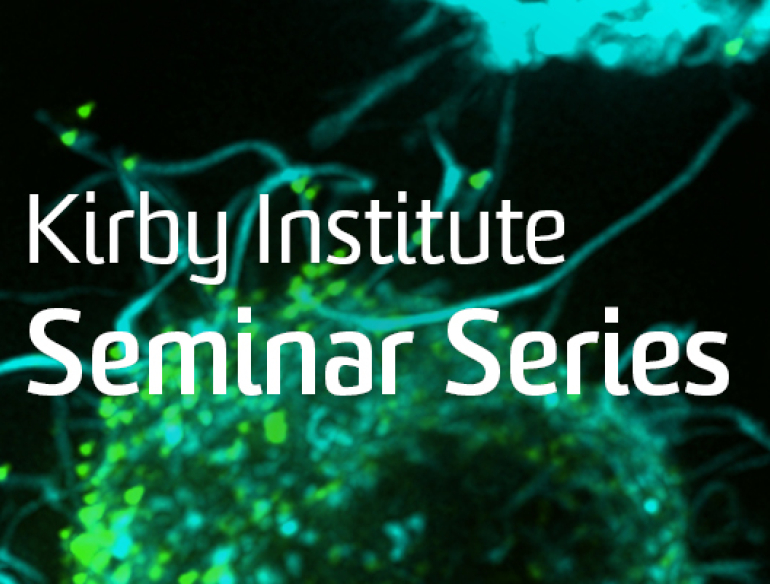Location:
Berg Family Foundation Seminar Room, Level 6, Wallace Wurth Building, Kensington Campus, UNSW Sydney
Contact for enquiries
Rata Joseph, +61 (2) 9385 0900 or recpt@kirby.unsw.edu.au
Kirby Institute Seminar Series presents
 |
Lecturer, School of Mathematics and Applied Statistics and the National Institute for Applied Statistics Research Australia (NIASRA), at University of Wollongong |
About your speaker
Dr Pavel N. Krivitsky is Lecturer in Statistics at the School of Mathematics and Applied Statistics and the National Institute for Applied Statistics Research Australia (NIASRA), at University of Wollongong. He received his BS in Biometry and Statistics at Cornell University and his PhD in Statistics at the University of Washington. His current interest is statistical modelling of social network data and processes, their formulation, implementation, inference, and application.
Abstract
Egocentric network sampling observes the network of interest from the point of view of a set of sampled actors, who provide information about themselves and anonymised information on their network neighbours. In survey research, this is often the most practical, and sometimes the only, way to observe certain classes of networks, with the sexual networks that underlie HIV transmission being the archetypal case. Although methods exist for recovering some descriptive network features, there is no rigorous and practical statistical foundation for estimation and inference for network models from such data. We identify a subclass of exponential-family random graph models (ERGMs) amenable to being estimated from egocentrically sampled network data, and apply pseudo-maximum-likelihood estimation to do so and to rigorously quantify the uncertainty of the estimates. For ERGMs parametrised to be invariant to network size, we describe a computationally tractable approach to this problem. We use this methodology to help understand persistent racial disparities in HIV prevalence in the US. Lastly, we discuss how questionnaire design affects what questions can and cannot be answered with this analysis.
This work is joint with Professor Martina Morris (University of Washington).
